Filter by

A world of fiction : digital collections and the future of literary history
During the 19th century, throughout the Anglophone world, most fiction was first published in periodicals. In Australia, newspapers were not only the main source of periodical fiction, but the main source of fiction in general. Because of their importance as fiction publishers, and because they provided Australian readers with access to stories from around the world—from Britain, America an…
- Edition
- -
- ISBN/ISSN
- 9780472130856
- Collation
- viii, 252p. : ill.
- Series Title
- -
- Call Number
- 809.3034 BOD a
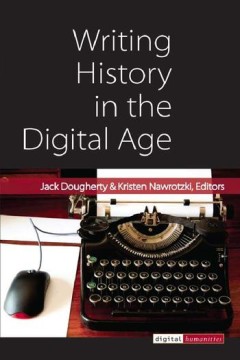
Writing history in the digital age
A born-digital project that asks how recent technologies have changed the ways that historians think, teach, author, and publish
- Edition
- -
- ISBN/ISSN
- 9780472072064
- Collation
- xiii, 283p. : ill.
- Series Title
- -
- Call Number
- 902.85 WRI w
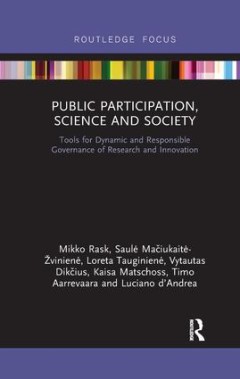
Public participation, science and society : tools for dynamic and responsible…
The field of public participation is developing fast, with phenomena such as citizen science and crowdsourcing extending the resource base of research, stimulating innovation and making science more accessible to the general population. Promoting public participation means giving more weight to citizens and civil society actors in the definition of research needs and in the implementation of…
- Edition
- -
- ISBN/ISSN
- 9781351272964
- Collation
- xvii, 133p. : ill.
- Series Title
- -
- Call Number
- 659.295 PUB p
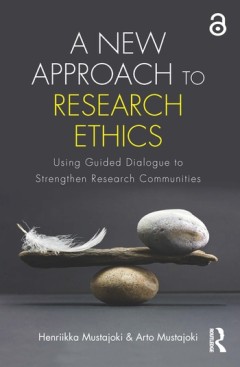
A new approach to research ethics : using grounded dialogue to strengthen res…
Ethics and Academic Research examines both theories of ethical decision-making as well as apply those theories to a broad range of situations and questions within a research career and process. The focus is not only on what is wrong, or in doing the actual research, it is a broader perspective on how ethics can be a positive force in strengthening the research community. Offering valuable guida…
- Edition
- -
- ISBN/ISSN
- 9781138682214
- Collation
- xvii, 236p. : ill.
- Series Title
- -
- Call Number
- 174.90014 MUS n
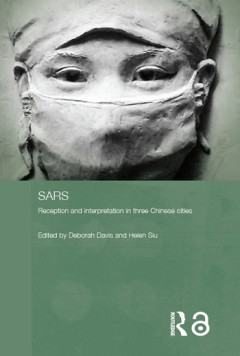
SARS : reception and interpretations in three Chinese cities
SARS (Acute Respiratory Syndrome) first presented itself to the global medical community as a case of atypical pneumonia in one small Chinese village in November 2002. Three months later the mysterious illness rapidly spread and appeared in Vietnam, Hong Kong, Toronto and then Singapore. The high fatality rate and sheer speed at which this disease spread prompted the World Health Organization t…
- Edition
- -
- ISBN/ISSN
- 9780203967690
- Collation
- xi, 180p. : ill.
- Series Title
- -
- Call Number
- 362.196200951 SAR s

Engaging the neighbours : Australia and ASEAN since 1974
From modest beginnings in 1967, the Association of Southeast Asian Nations (ASEAN) has become the premier regional institution in Southeast Asia. The 10 members are pursuing cooperation to develop the ‘ASEAN Community’ and also sponsor wider dialogues that involve the major powers. Australia has been interested in ASEAN since its inauguration and was the first country to establish a multila…
- Edition
- -
- ISBN/ISSN
- 9781760460181
- Collation
- xiv, 258p. : ill.
- Series Title
- -
- Call Number
- 327.94059 FRO e
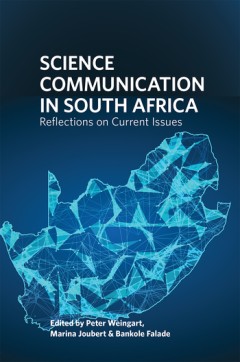
Science communication in South Africa : reflections on current issues
"Why do we need to communicate science? Is science, with its highly specialised language and its arcane methods, too distant to be understood by the public? Is it really possible for citizens to participate meaningfully in scientific research projects and debate? Should scientists be mandated to engage with the public to facilitate better understanding of science? How can they best communicate …
- Edition
- -
- ISBN/ISSN
- 9781928502050
- Collation
- iv, 231p. : ill.
- Series Title
- -
- Call Number
- 001.4028558 SCI s
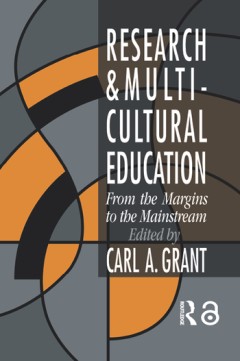
Research in multicultural education : from the margins to the mainstream
First published in 1992. Routledge is an imprint of Taylor & Francis, an informa company.
- Edition
- -
- ISBN/ISSN
- 9781135388683
- Collation
- vi, 267p. : ill.
- Series Title
- -
- Call Number
- 370.19341072 RES r
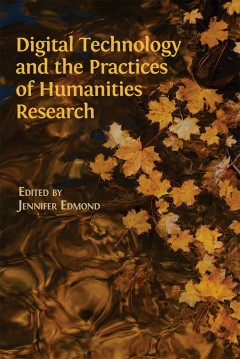
Digital technology and the practices of humanities research
How does technology impact research practices in the humanities? How does digitisation shape scholarly identity? How do we negotiate trust in the digital realm? What is scholarship, what forms can it take, and how does it acquire authority?This diverse set of essays demonstrate the importance of asking such questions, bringing together established and emerging scholars from a variety of discipl…
- Edition
- -
- ISBN/ISSN
- 9781783748419
- Collation
- XI, 276 p.
- Series Title
- -
- Call Number
- 303.4834 DIG d

Raising the impact of education research in Africa
The low demonstrable effect of education research done in South Africa in particular – and Africa in general – continues to be a problem in scientific records in the educational sciences. This scholarly collected work addresses this obstacle and focuses on recommendations from scholars in different sectorial categories in the field of education. Scholars from a variety of sub-fields within …
- Edition
- -
- ISBN/ISSN
- 9781928396802
- Collation
- xxvii, 412p. : ill.
- Series Title
- -
- Call Number
- 370.7096 RAI r
 Computer Science, Information & General Works
Computer Science, Information & General Works  Philosophy & Psychology
Philosophy & Psychology  Religion
Religion  Social Sciences
Social Sciences  Language
Language  Pure Science
Pure Science  Applied Sciences
Applied Sciences  Art & Recreation
Art & Recreation  Literature
Literature  History & Geography
History & Geography